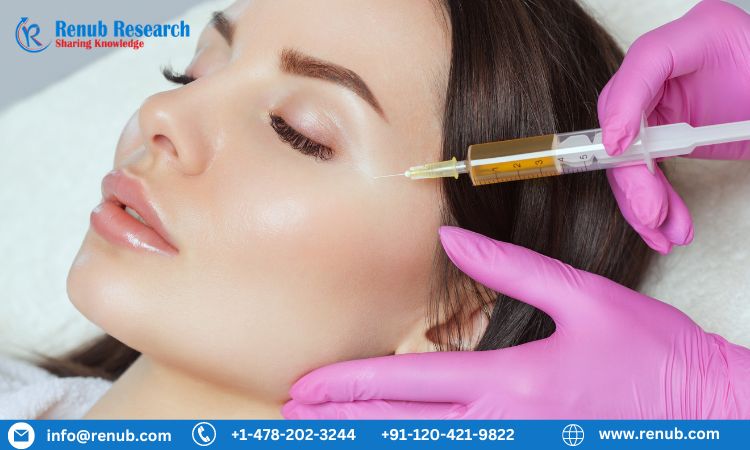The human body is a complex network of interconnected systems, each playing a vital role in maintaining our overall health and well-being. Among these intricate systems, the circulatory system stands as a paramount component, responsible for the transport of oxygen, nutrients, and waste products throughout the body. Within this system, veins play a crucial role in returning deoxygenated blood to the heart, ensuring proper circulation. However, when issues arise within the veins, seeking the expertise of medical professionals specialized in venous health becomes essential. This article delves into the world of vein clinics, the medical experts who operate within them, and the distinctive types of doctors dedicated to diagnosing and treating vein-related conditions.
Understanding Vein Clinics
What is a vein clinic medical facility that focuses on the diagnosis, treatment, and management of various venous disorders. These clinics offer a comprehensive range of services tailored to address conditions such as varicose veins, spider veins, deep vein thrombosis (DVT), venous ulcers, and chronic venous insufficiency. Vein clinics are equipped with state-of-the-art technology and medical advancements designed to provide patients with effective, minimally invasive treatments.
Within a vein clinic, a collaborative approach between different medical professionals ensures that patients receive holistic care. This may involve vascular surgeons, interventional radiologists, dermatologists, and other medical staff, each contributing their expertise to deliver optimal outcomes for patients with diverse venous issues.
Exploring The Vein Specialists
Vascular Surgeons: Among the professionals found in vein clinics, vascular surgeons stand out as experts in the surgical treatment of vascular and venous disorders. These highly skilled surgeons are trained to perform intricate procedures such as vein bypass surgery, endovenous laser treatment (EVLT), and ambulatory phlebectomy. Their expertise lies in surgically addressing complex vein conditions that may not respond effectively to non-invasive methods.
Interventional Radiologists: Another integral component of vein clinics is the interventional radiologist. These medical professionals utilize advanced imaging techniques, such as ultrasound and fluoroscopy, to guide minimally invasive procedures. Procedures like venous ablation, sclerotherapy, and catheter-directed thrombolysis fall within their realm of expertise. Interventional radiologists excel in delivering targeted treatments with precision, often minimizing patient discomfort and recovery times.
Phlebologists: Phlebologists are medical doctors who specialize specifically in the diagnosis and treatment of venous disorders. Their focused expertise allows them to offer both non-surgical and minimally invasive solutions, tailored to the unique needs of each patient. Sclerotherapy, for instance, is a common procedure administered by phlebologists to treat spider veins and smaller varicose veins. Their deep understanding of venous health positions them as key players in vein clinics.
Dermatologists: While dermatologists primarily specialize in skin-related conditions, many vein clinics incorporate them into their teams due to their proficiency in addressing cosmetic aspects of vein disorders. Spider veins, which are smaller, superficial veins often associated with cosmetic concerns, can be effectively treated through procedures such as sclerotherapy. Dermatologists bring their aesthetic sensibilities to vein clinics, ensuring patients receive not only effective treatment but also a boost in self-confidence.
Explore an extensive collection of enlightening posts awaiting your perusal, covering a diverse range of topics including “Reactive Depression,” “Tapping for Anxiety,” and “Intermittent Explosive Disorder (IED).” Delve into these thought-provoking articles that delve into the intricacies of these psychological and emotional aspects. Gain insights into understanding and managing reactive depression, learn about the potential benefits of tapping techniques for alleviating anxiety, and explore the complexities surrounding Intermittent Explosive Disorder. Whether you’re seeking a deeper comprehension of these conditions or seeking practical strategies for coping, our curated posts offer a wealth of knowledge to satiate your curiosity and provide valuable insights for enhancing mental well-being.
Conclusion
What is a Vein Doctor Called and well-being take precedence, specialized medical facilities such as vein clinics play a pivotal role. These clinics house a diverse group of medical professionals, each contributing their unique expertise to address a wide array of venous disorders. From vascular surgeons performing intricate surgeries to interventional radiologists employing advanced imaging techniques, and from phlebologists offering tailored non-surgical solutions to dermatologists addressing cosmetic concerns – the collaborative efforts within vein clinics exemplify medical excellence.
So, the next time you ponder the intricate network beneath your skin, remember that within the realm of medicine, there are dedicated experts committed to ensuring the smooth flow of life’s vital river – the veins. Whether you’re seeking relief from discomfort or aiming to enhance your aesthetic appeal, the professionals within vein clinics stand ready to provide specialized care, ensuring your veins remain as healthy as your appreciation for their intricate role in your well-being.





